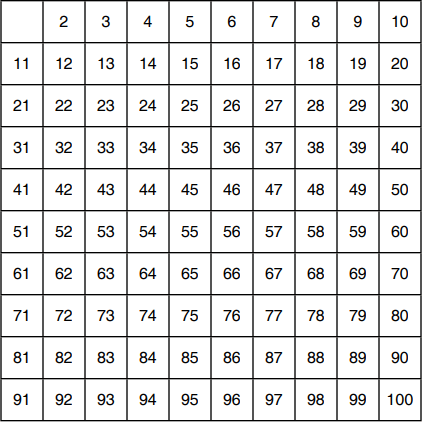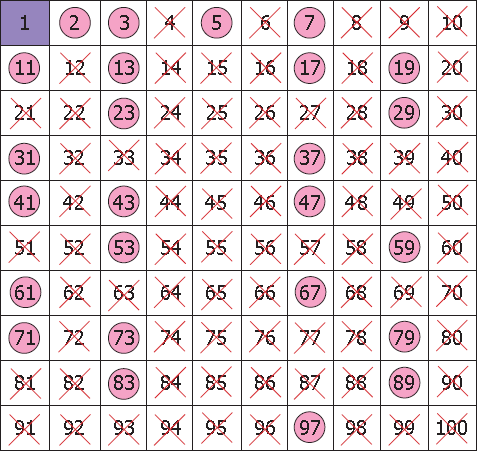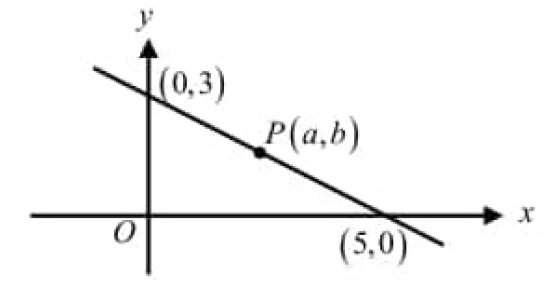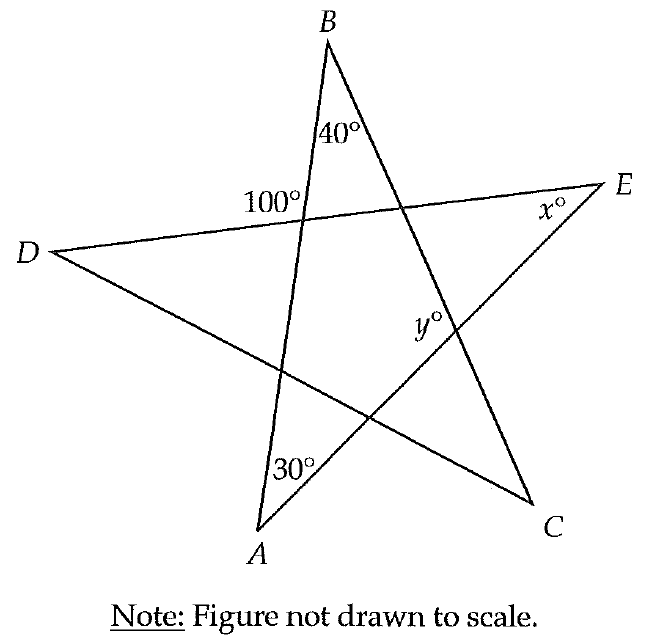SIEVE OF ERATOSTHENES WORKSHEET
Question 1 :

In the grid shown above, do the following :
(i) Circle the smallest number that is not already circled or crossed out.
(ii) Cross out all of the multiples of the number you circled in Step 1 except the circled number itself.
(iii) Repeat Steps 1 and 2 until every number on the grid is either circled or crossed out.
Question 2 :
Use Sieve of Eratosthenes method and find all the composite and prime numbers from 1 to 100.
Question 3 :
How many prime number are there from 1 to 100?
Question 4 :
How many prime numbers end with 5?
Question 5 :
How many prime numbers are even?
Question 6 :
Find the sum of the smallest and largest two-digit prime numbers.
Question 7 :
What is the difference between the smallest two-digit prime number and the smallest one-digit prime number?

Answers
1. Answer :

2. Answer :
Look at the grid in 1. Answer above.
From the Sieve of Eratosthenes, we observe that, the crossed-out numbers are composite and the colored numbers (encircled) are primes.
3. Answer :
The total number of prime numbers from 1 to 100 is 25.
4. Answer :
There is only one prime number that ends with 5 is 5.
5. Answer :
There is only one prime number which is even, that is 2.
6. Answer :
From the grid in 1. Answer,
the smallest two-digit prime number = 11
the largest two-digit prime number = 97
Sum of the smallest and largest two-digit prime numbers :
= 11 + 97
= 108
7. Answer :
From the grid in 1. Answer,
the smallest two-digit prime number = 11
the smallest one-digit prime number = 2
Difference between the smallest two-digit prime number and the smallest one-digit prime number :
= 11 - 2
= 9
Kindly mail your feedback to v4formath@gmail.com
We always appreciate your feedback.
©All rights reserved. onlinemath4all.com
Recent Articles
-
Digital SAT Math Problems and Solutions (Part - 134)
Apr 02, 25 12:40 AM
Digital SAT Math Problems and Solutions (Part - 134) -
SAT Math Resources (Videos, Concepts, Worksheets and More)
Apr 02, 25 12:35 AM
SAT Math Resources (Videos, Concepts, Worksheets and More) -
Digital SAT Math Problems and Solutions (Part 135)
Apr 02, 25 12:32 AM
Digital SAT Math Problems and Solutions (Part 135)

